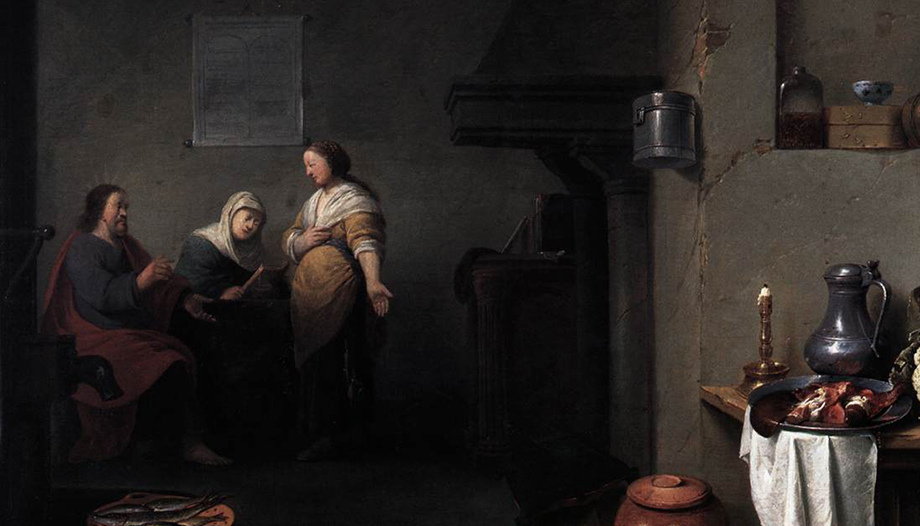Jesus is grateful for the hospitality of Martha, who welcomes him into her home and does everything possible so that he, with his disciples, can rest and regain strength. Jesus knows Martha and Mary well. The two sisters have a simple and direct relationship with him, which we would like to imitate. It is noticeable that they have a different character: Martha is operative and extroverted, Mary quiet and reflective.
In her work, something happens to Marta that can happen to anyone. If we are pressured by urgencies, deadlines, the fear of not being up to the circumstances, the desire not to disfigure, not knowing how to prioritize two simultaneous requests, we can lose patience, and at the same time lose the right perspective of things and the sense for which we do them.
So we put ourselves at the center of the scene and begin to protest, even if only inwardly, to the people from whom we expect help that does not come. Everything is dragged down by impatience: the brothers, the sisters, even God who has put us in this situation and does not respond to prayer as we would wish, according to our command.
If, moreover, it happens to us, as it did to Martha, that when we look at the person who should understand us and help us, we discover that he or she is enjoying life, doing what we would like to do but cannot, we are overcome by victimhood, exacerbated by a hidden envy. Martha would also have liked to sit and listen to Jesus, but she thinks she cannot: there are too many things to do.
Jesus repeats his name twice: "Marta, Marta"He does the same, also in Luke's Gospel, with Simon when he tells him that he prayed for him before announcing his denial, and with Jerusalem when he reveals to the beloved city that he would have liked to gather her children together like a hen gathers her chicks. It is a way of tenderly telling her that he loves her as she is.
He loves her impetuous character, as he loves Mary's meek character.
She loves her work of service, but precisely for that reason she desires for herself a greater and more lasting happiness, and so she gives him the remedy: she must talk to him, as Mary does, listen to him, not lose sight of him when she works for him, love him as he wishes to be loved.
He appreciates his food, but enjoys more his serene company and his love freed from his overbearing ego: three times he has spoken of himself in a few words: "My sister has left me alone, tell her to help me.".
The part that Mary chose can best be translated from the Greek as "the good part", without comparison. It is being with Jesus, loving him, before work and during work. A part that is never lost and that is capable of making good every action, every day, every work, every service, every apostolate, every life.
The homily on the readings of Sunday XVI
The priest Luis Herrera Campo offers its nanomiliaa small one-minute reflection for these readings.












